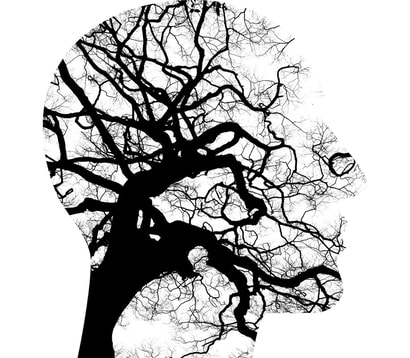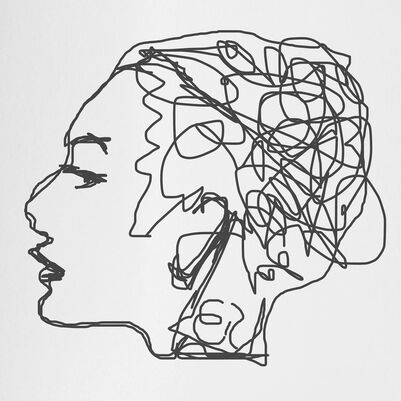The second objective is to address hurdles within Muslim communities preventing individuals from accessing mental health services. Here we’re often talking about stigma, whereby “cultural ignorance” (e.g. the family doesn’t understand mental illness) or “religious primacy” (depression is primarily a spiritual or moral defect) are considered the main culprits. These are usually addressed through psycho-education and mental health awareness programs, which may potentially include Muslim scholars in their teams.
Both streams are naturally interwoven and together formulate the forefront of an emerging (and financially very lucrative) MMH industry. But a third, and I might argue, more overarching concern of MMH, encapsulates both these objectives: the politicization of Muslim. In other words, taking the political climate into consideration, MMH is unique (even if it may share some similarities to other ethnic or religious groups). And it’s not just mental illness- ‘Muslim experiences’ as a whole must be understood within a socio-political climate which increasingly normalizes and institutionalizes Islamophobia. For example, while everyone may experience anger, the anger of a racialized Muslim (as in someone whose appearance or actions signify their relationship to Muslims/Islam) may fall within a logic understood as a potential risk factor (e.g. radicalization, domestic abuse) than the anger of a White individual.
While some might argue that the socio-political conditions of Western Muslims can fit within either of the two objectives mentioned above, I believe its importance warrants exclusive attention. The following is a fictional example, conjured from real life experiences, which I’ll use to illustrate how the politicization of MMH can impact a Muslim’s understanding, access and treatment for their anguish. Whenever you see a (*) at the end of a sentence, then know this was a real example drawn from my own research and clinical practice.
The first thing she realizes is that she’s reluctant to visit a public mental health service (like the National Health Service in the UK) in a society she finds increasingly Islamophobic, as she is certain the therapist will judge her choice of niqab as regressive(*). That’s notwithstanding she also believes the therapist might see her devotion to God, above that of the Nation-State, as incompatible in a liberal society(*). Fatima is also aware of a counter-radicalization duty in the NHS (called PREVENT). Her fear then is compounded by the possibility that her suffering might be securitized by the therapist, who might think this young woman is vulnerable to becoming ‘the next Shamima Begum’ (an infamous case of a now-stateless Muslim adolescent perceived to have been groomed into joining ISIS), warranting yet again a referral for counter-radicalization(*).
She finally sees a therapist. In the first session, the therapist tells her that one of the signs of successful treatment is her ability to remove her niqab(*). The sessions that follow are laced with awkward interrogations regarding Fatima’s family, especially her father. It appears the therapist is trying to tease out if Fatima was forced to wear the niqab in the first place(*). Meanwhile the therapist condescendingly celebrates Fatima’s desire to complete a Masters degree(*). The therapist sees the source of all of Fatima’s problems to be familial and intergenerational. For example, the therapist believes Fatima’s distress is fundamentally related to her parents controlling demeanor (i.e. they want her to get married), and not the academic/job market which severely disfavors Muslim women, pushing them to ‘over-perform’ in order to succeed.
Fatima withholds her political views, especially on Israel, and the anger she feels towards a political class which so casually berates her, day in, day out(*). Fatima knows anything she says might be shared with the Home Office, given her family were initially refugees. Fatima ends therapy prematurely, feeling worse off than when she started.
***
This was a fictional tapestry, but each individual strand of it is true. None of the points above could have been prevented with cultural sensitivity training (or ‘cultural competence’), as the therapist’s discriminatory remarks made towards Fatima were not ones made in ignorance but rather reflect deeply ingrained, prejudicial biases found within society. You can’t train away racism – especially if they have social and political legitimacy - and hence there’s little point in teaching him about Islam or Muslim women. If a therapist were to believe Muslim women are oppressed, simply telling them ‘most Muslim women wear the veil by their own accord’ will not make the cut. An ideal therapist then would need an extraordinary capacity for reflexivity towards their own ideological make-up. In essence then, it is ‘political reflexivity training’ that would be necessary (looking inwards), not cultural sensitivity of the patient (looking outwards). Nor could Fatima’s issues be addressed by reducing stigma or developing mental health awareness programs within the Muslim community, as the stigma in her case did not originate from within the community, but from without.
The streams of cultural sensitivity-training and stigma-reduction are good in spirit, but not absolutely, for they do not sufficiently politicize the contemporary status of MMH in the Global North. An uncritical, apolitical push for more MMH may develop a color-blind enterprise, placing Western Muslims on ‘equal footing’ with other ethnic and religious groups. But this is certainly not the case. Some groups – their bodies, choices and practices - due to their unique standing in a social and political order, are seen as more incompatible, regressive and irrational than others. Unless the racial order especially embedded within nationalism is taken into account, aspirations to improve MMH will certainly be thwarted.
Muslim mental health professionals and researchers must acknowledge a reality in which a White person speaking ill of Muslims might get them elected, and a Muslim speaking ill of the State might see them getting referred to mental health services – for the sake of national security. Unless we recognize the “affective surveillance” of Muslims across the Global North – driving Fatima’s fear her suffering will be exceptionally scrutinized by her therapist - all our efforts to develop foundations for MMH might amount to little else than sugar-coating wider political dynamics of Islamophobia, thereby erasing one of the root causes of so much frustration and anxiety within the Muslim community.
The success of Muslim mental health will not be determined by cultural or religious sensitivity, but a political one.


 RSS Feed
RSS Feed